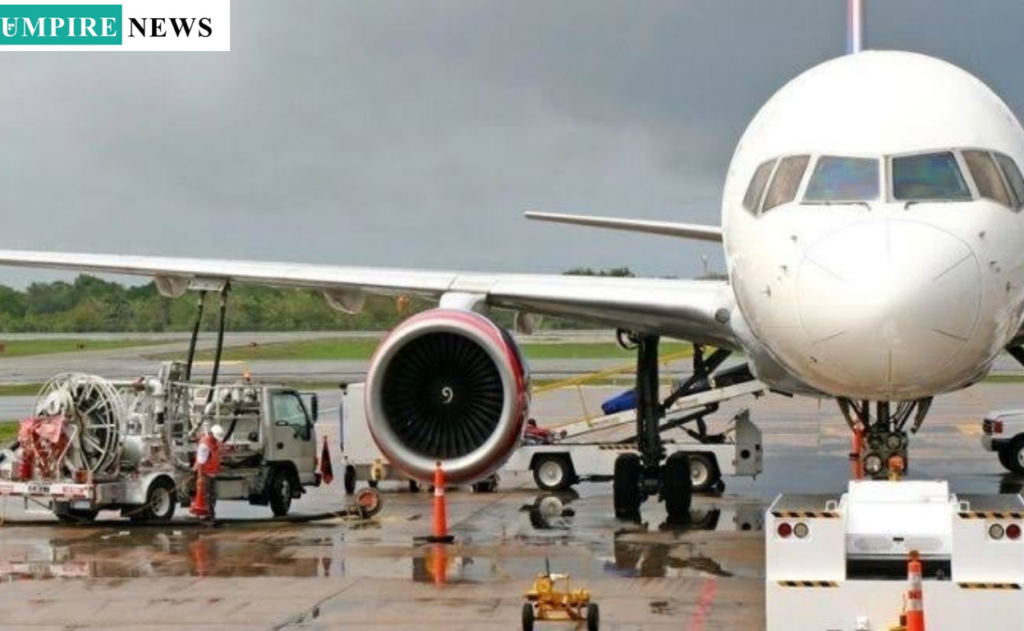The federal government has officially designated Dangote Refinery as the exclusive supplier of jet fuel, known as Jet A1, for all airline operators in Nigeria.
This decision marks a key step in addressing the supply needs of the aviation sector in the country.
The announcement was made by the Minister of Aviation, Festus Keyamo, during an interview aired on Tuesday.
In his interview, Keyamo elaborated on the decision, noting that it was made with the consensus of the airline operators, who agreed to source all their jet fuel exclusively from the Dangote Refinery.
He expressed his full endorsement of this arrangement, highlighting that the approval was granted with his support.
Keyamo explained that the move comes at an opportune time, coinciding with the recent implementation of a naira-for-crude oil deal between the federal government and Dangote Refinery.

This agreement eliminates the need for foreign exchange in jet fuel purchases, helping to ease the burden on Nigeria’s foreign currency reserves.
“The airline operators just met recently. With my blessing, it’s a decision from the airline operators in Nigeria that they should only buy from Dangote refinery Jet A1.
“You can see that yesterday we started naira-for-crude purchase with Dangote. It’s all Naira, no Dollar component,” Keyamo said.
He emphasized that the transition to sourcing jet fuel locally from Dangote Refinery would not only alleviate the challenges posed by foreign exchange but would also stabilize fuel prices.
By purchasing fuel in naira rather than dealing with fluctuating international market prices, Nigerian airline operators can better control their costs, which could lead to more affordable and predictable fuel pricing.
“The price will no longer be subjected to the varying factors of the international market, nor the headwinds of oil price in the international market. It will be in local currency so we can be clear as to the cost of it. We will buy in naira. I’m sure we are going to have access to cheaper Jet A1 fuel,” Keyamo added.
Keyamo pointed out that the shift to local sourcing from Dangote would also shield the aviation sector from the volatility of global crude oil prices.
This stabilization is expected to significantly reduce the operational costs faced by Nigeria’s airlines, which are often strained by fluctuating fuel prices linked to global oil markets.
Background and Developments
The Dangote Refinery, which began operations in April 2024, is a game-changer in Nigeria’s energy landscape.
The refinery started with the production of jet fuel and diesel, and its diesel products entered the local market shortly after in May of the same year.
This marked a pivotal moment, as the refinery’s output began to make its way into both domestic and international markets.

In fact, after meeting some of the domestic demand for aviation fuel, the refinery exported its first cargo of jet fuel to Europe.
This initial shipment, which consisted of 45,000 metric tons of jet fuel, was transported aboard the vessel “Doric Breeze.”
The ship departed from the Lekki Free Zone in Lagos on May 27th, en route to Rotterdam in the Netherlands, according to data provided by S&P Global Commodities at Sea.
This export was part of a larger tender of 120,000 metric tons of jet fuel, with British multinational BP securing a portion of the supply.
Additionally, Spanish refiner Cepsa also acquired part of this tender, signaling the international demand for Dangote’s aviation fuel.
The refinery’s exports have not been limited to Europe, however, as of now, six cargoes of jet fuel and kerosene have been exported, with deliveries made to countries such as Senegal, Togo, and Ghana.
Key Facts You Should Know;
Aliko Dangote, Africa’s wealthiest individual, spearheaded the construction of the Dangote Refinery with an investment of $20 billion.
The refinery has a processing capacity of 650,000 barrels of oil per day, positioning it as the largest refinery not only in Africa but also in Europe once it reaches full operational capacity, which is anticipated to occur either this year or the next.
The completion of the Dangote Refinery represents a monumental shift for Nigeria, a country that, despite being the continent’s largest oil producer and most populous nation, has long been reliant on imported petroleum products.
This dependency is largely due to inadequate refining infrastructure, a gap that the Dangote Refinery aims to fill.
By processing crude oil locally, the refinery is expected to significantly reduce Nigeria’s need to import refined petroleum products, helping to strengthen the nation’s energy security and economic independence.
The refinery’s ability to produce jet fuel domestically is particularly noteworthy, given the importance of aviation fuel to the airline industry.
With Dangote Refinery now serving as the exclusive supplier of Jet A1 fuel to Nigeria’s airlines, the country stands to benefit from more stable fuel prices, reduced foreign exchange pressures, and a strengthened local supply chain, all of which could contribute to a more robust and competitive aviation sector in the years to come.































